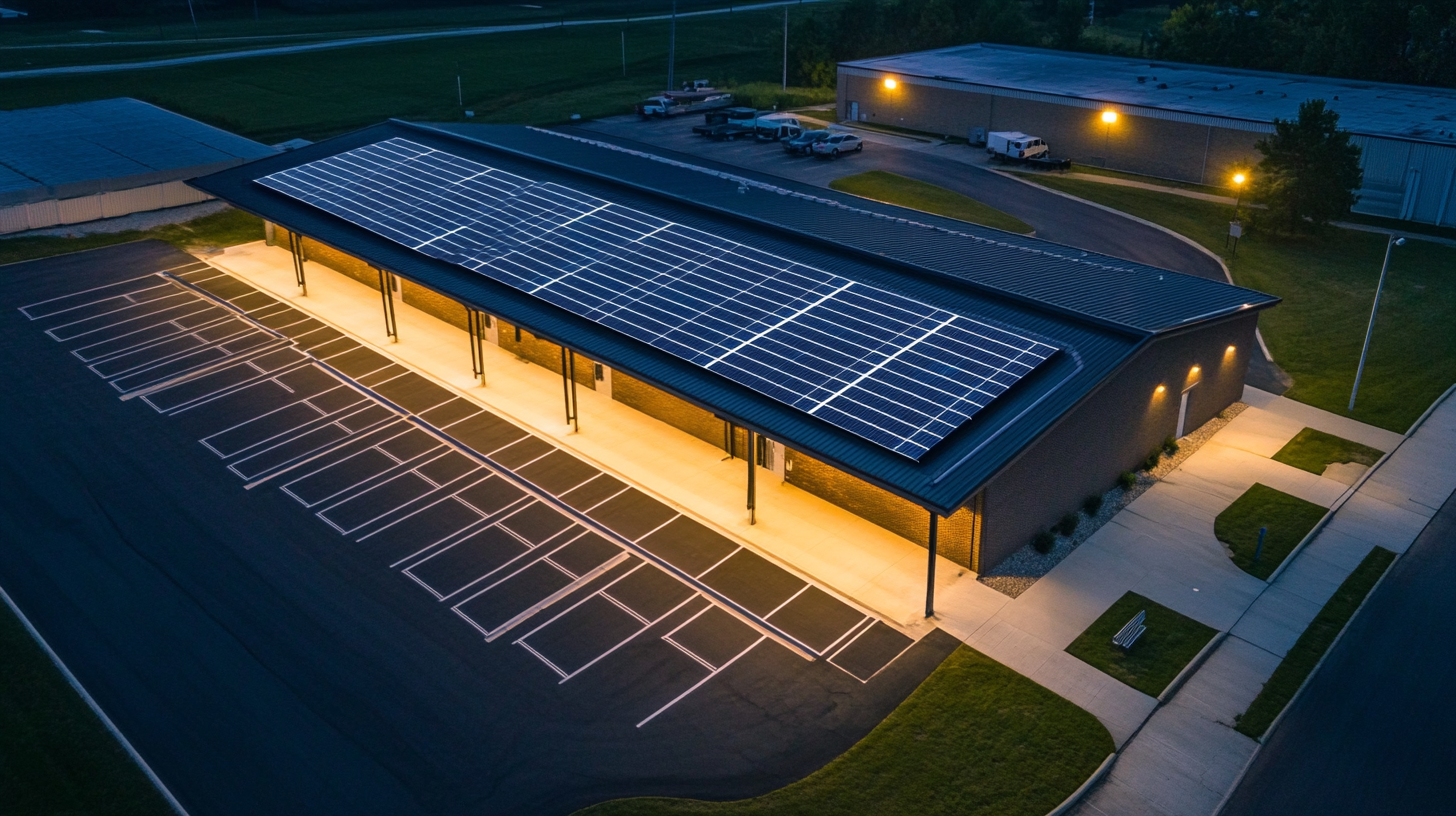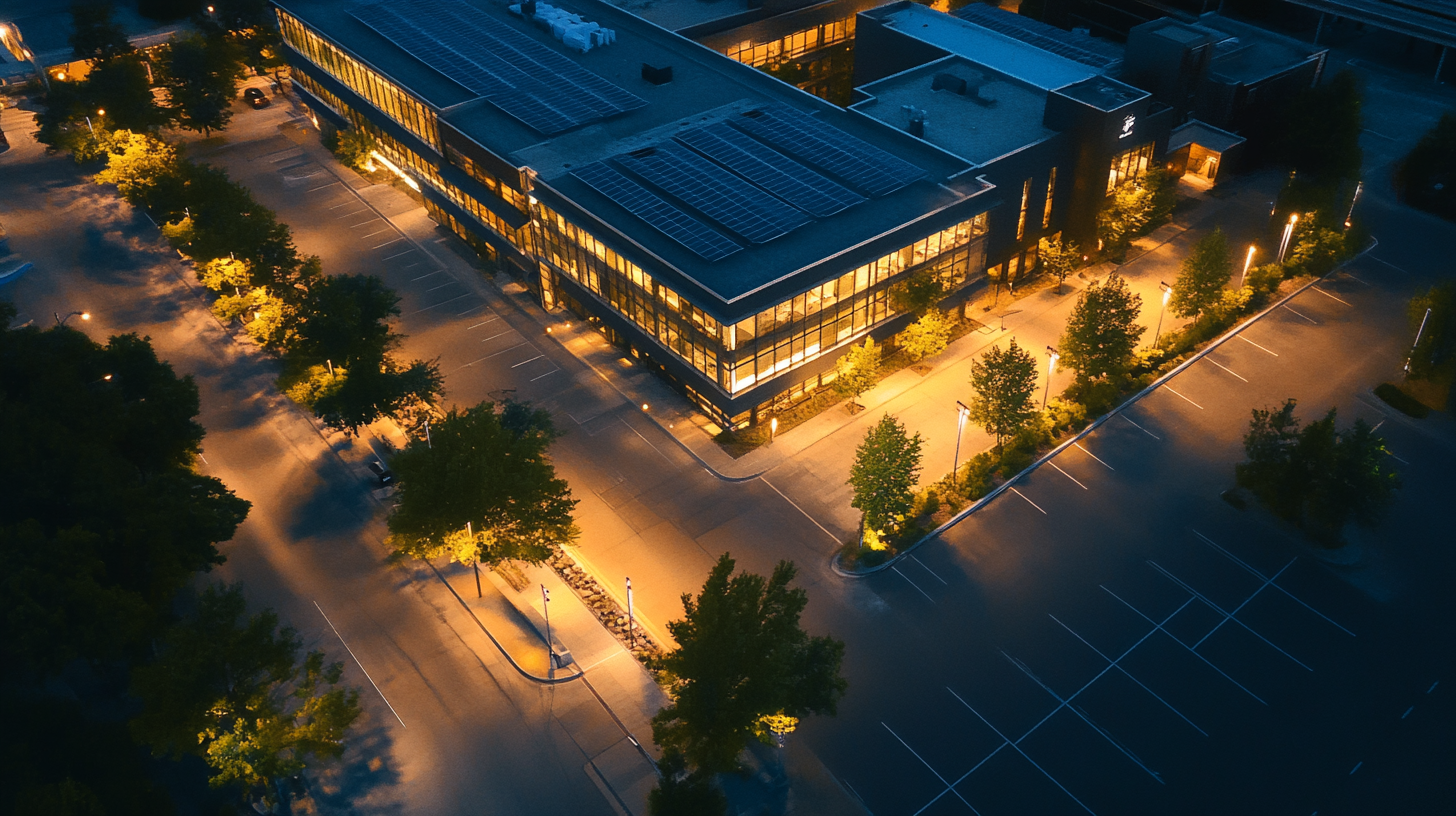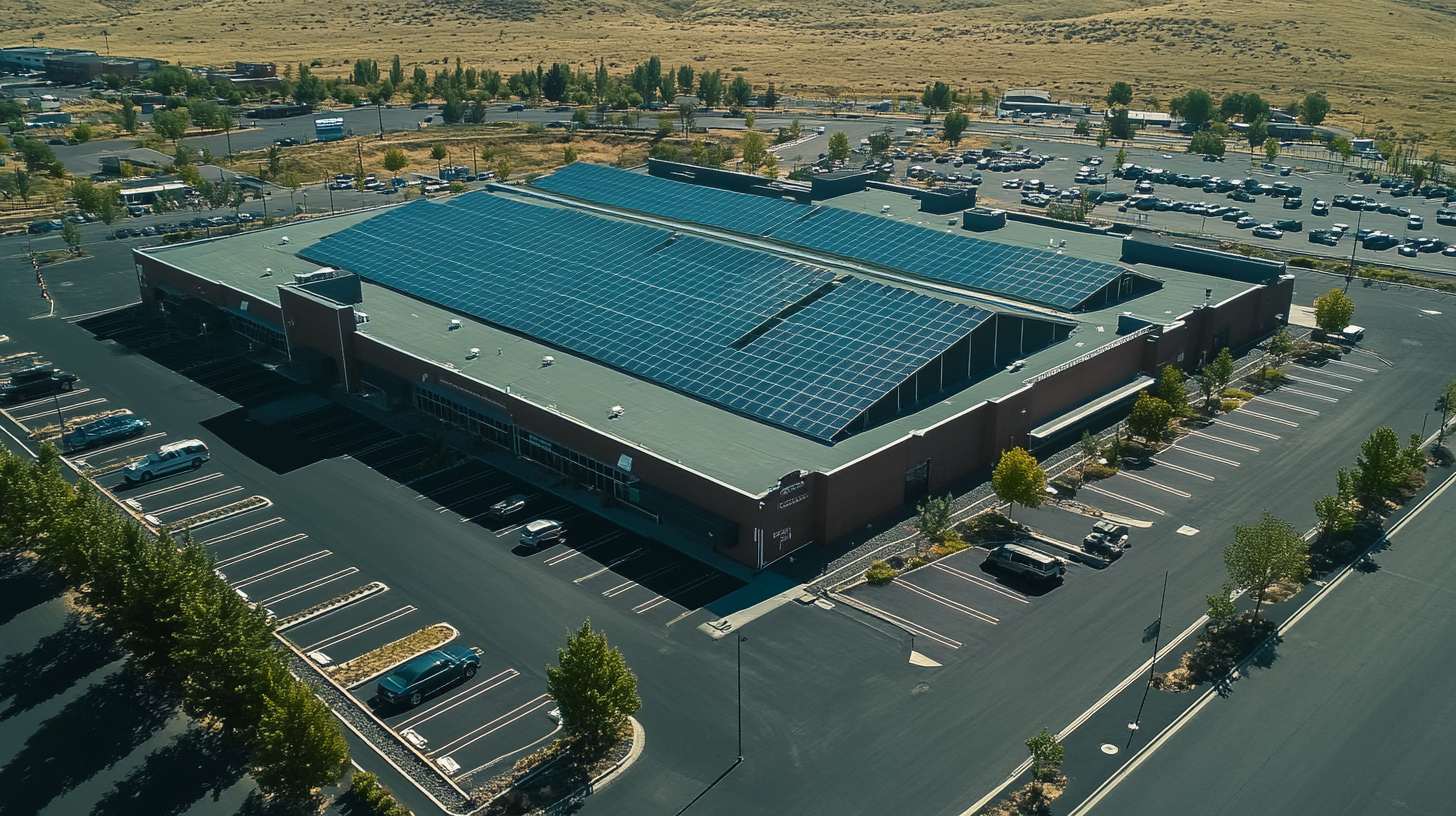Advantages of Choosing Commercial Solar Lighting for Sustainable Business Solutions
In recent years, businesses are increasingly turning towards sustainable solutions to enhance their corporate responsibility and reduce operational costs. One noteworthy advancement in this realm is the adoption of Commercial Solar Lighting, which not only supports energy efficiency but also contributes to significant cost savings. According to a report by the International Renewable Energy Agency (IRENA), the global solar market has been growing at a rate of approximately 40% annually, with commercial applications leading this surge. By integrating solar lighting systems, businesses can decrease their reliance on conventional power sources, allowing for substantial reductions in energy expenses while promoting environmental sustainability.
Moreover, the implementation of Commercial Solar Lighting has been shown to improve safety and security in commercial spaces. A study published by the National Renewable Energy Laboratory (NREL) highlighted that well-lit areas can reduce crime rates by up to 30%, reinforcing the practicality of solar lighting solutions. As municipalities and companies alike strive to meet sustainability goals, the increased efficiency and versatility of solar lighting aid in achieving these objectives. With technologies continually advancing, the potential for Commercial Solar Lighting to transform the landscape of sustainable business practices has never been more promising.

Benefits of Commercial Solar Lighting for Reducing Operational Costs
Commercial solar lighting is increasingly recognized as a viable solution for businesses aiming to reduce operational costs while promoting sustainability. According to a report by the National Renewable Energy Laboratory, businesses can save up to 75% on their energy bills by switching to solar lighting systems. This significant reduction underscores how solar energy not only contributes to cost savings but also enhances operational efficiency. Moreover, the installation of solar lighting can lead to a substantial decrease in maintenance costs. Traditional lighting systems often require frequent bulb replacements and repairs, but solar lights are designed with durability in mind. A study by the Solar Energy Industries Association found that solar lighting systems have an average lifespan of 25 years, compared to just a few years for conventional options. This longevity translates into fewer expenses for businesses in terms of maintenance and replacement. Furthermore, businesses that incorporate solar lighting can benefit from various state and federal incentives aimed at encouraging renewable energy use. The U.S. Department of Energy highlights that companies investing in solar solutions can access tax credits, rebates, and grants, which can substantially offset initial installation costs. These financial incentives, combined with the long-term savings on energy and maintenance, make commercial solar lighting a smart investment for businesses looking to improve their bottom line while supporting a sustainable operational model.

Impact of Solar Lighting on Business Sustainability Metrics and Goals
The integration of commercial solar lighting into business operations stands as a pivotal element in enhancing sustainability metrics and reaching long-term corporate goals. By harnessing solar energy, businesses not only reduce their dependence on traditional energy sources but also significantly lower their greenhouse gas emissions. According to recent findings, ground-mounted solar energy installations, including photovoltaics (PV), play a vital role in decreasing both direct and indirect emissions, thereby fostering a more sustainable operational framework.
Furthermore, adopting solar lighting solutions contributes directly to a firm’s commitment to the triple bottom line, which emphasizes a balance between people, profit, and planet. Companies that prioritize environmental sustainability can achieve notable improvements in their operational efficiency. For instance, smarter energy management systems, powered by advanced technologies like AI, can optimize energy consumption and reduce waste, as firms strive towards net-zero emissions. The emphasis on such innovative practices not only propels businesses towards compliance with growing regulatory frameworks but also enhances their brand reputation among eco-conscious consumers.
The metrics for assessing sustainability are evolving, and businesses that implement solar lighting can capitalize on standardized measures such as life-cycle assessments and greenhouse gas inventory scoring. These standardized metrics can provide clearer insights into the environmental impacts of solar energy, thus empowering businesses to set and achieve ambitious decarbonization goals. As the transition towards sustainability accelerates, companies that invest in solar solutions will find themselves at the forefront of this transformation, marked by a commitment to responsible practices that align with broader sustainability objectives.

Key Statistics on Energy Savings from Commercial Solar Lighting Solutions
Commercial solar lighting has emerged as a compelling solution for businesses aiming to boost sustainability while minimizing operational costs. According to a report by the National Renewable Energy Laboratory (NREL), solar lighting can help organizations save up to 75% on energy costs compared to traditional lighting systems. This remarkable reduction not only lowers expenses but also contributes to a more environmentally friendly footprint, essential for businesses looking to adopt sustainable practices.
Key statistics further underscore the benefits of commercial solar lighting. A study conducted by the Solar Energy Industries Association (SEIA) reveals that the installation of solar lighting systems can lead to a decrease in carbon emissions by approximately 1.4 tons per year for a medium-sized commercial facility. This shift not only supports corporate responsibility initiatives but also aligns with global efforts to combat climate change, as more companies commit to net-zero goals.
Moreover, with advancements in solar technology, businesses can now expect better efficiencies and longer lifespans for solar lighting solutions. According to the U.S. Department of Energy, newer LED solar lights can last up to 50,000 hours, translating to more than five years of continuous use with minimal maintenance. This longevity, paired with reduced energy consumption, makes commercial solar lighting not just an eco-friendly choice but also a smart financial investment for businesses aiming for long-term sustainability.

The Role of Solar Lighting in Enhancing Workplace Safety and Aesthetics
The role of solar lighting in enhancing workplace safety and aesthetics cannot be overstated. As businesses seek to create safer and more visually appealing environments, commercial solar lighting emerges as an essential solution. By illuminating dark areas and improving visibility, solar lighting significantly reduces the risk of accidents and injuries. For instance, pathways, parking lots, and entryways that are well-lit deter potential hazards and create a more secure atmosphere for employees and visitors alike.
Moreover, solar lighting contributes to the aesthetic appeal of a business. With a variety of design options available, companies can choose fixtures that align with their branding and architectural style. The warm glow of solar lights can transform outdoor spaces, making them more inviting and enhancing the overall ambiance of the workplace. As organizations prioritize employee well-being and customer satisfaction, the integration of solar lighting not only boosts security but also elevates the visual experience, creating an environment that fosters productivity and morale.
Additionally, adopting solar lighting as part of a sustainability strategy can further enhance a company’s reputation. Businesses that invest in eco-friendly solutions signal their commitment to environmental responsibility, appealing to both customers and potential employees who value sustainability. This alignment with contemporary values not only ensures compliance with regulations but also positions a company as a leader in their industry, paving the way for greater success in the long run.
Long-term Return on Investment: Analyzing Commercial Solar Lighting Adoption
As companies increasingly prioritize sustainability, the adoption of commercial solar lighting stands out as a progressive step towards eco-friendly operations. The long-term return on investment (ROI) associated with solar lighting installations not only enhances environmental responsibility but also provides substantial financial benefits. Businesses can significantly reduce their electricity bills, as solar lighting harnesses renewable energy rather than relying on conventional electric sources. This shift not only represents a strategic cost-saving measure but also adds resilience against rising utility prices.
Moreover, the minimal maintenance required for solar lighting systems further enhances their economic appeal. With fewer moving parts and minimal reliance on traditional power sources, the operational costs are considerably lower over time. In addition, many jurisdictions offer incentives and rebates for companies that choose renewable energy solutions, further improving the ROI. By investing in solar lighting, businesses not only align themselves with sustainable practices but also position themselves for long-term financial growth.
In a world where corporate responsibility is coming under increased scrutiny, adopting commercial solar lighting can also improve a company’s public image. As customers are becoming more environmentally conscious, firms that demonstrate a commitment to sustainability can enhance their brand reputation and attract a broader customer base. This alignment of operational practices with consumer values not only fosters loyalty but also strengthens market competitiveness in an ever-evolving business landscape.

